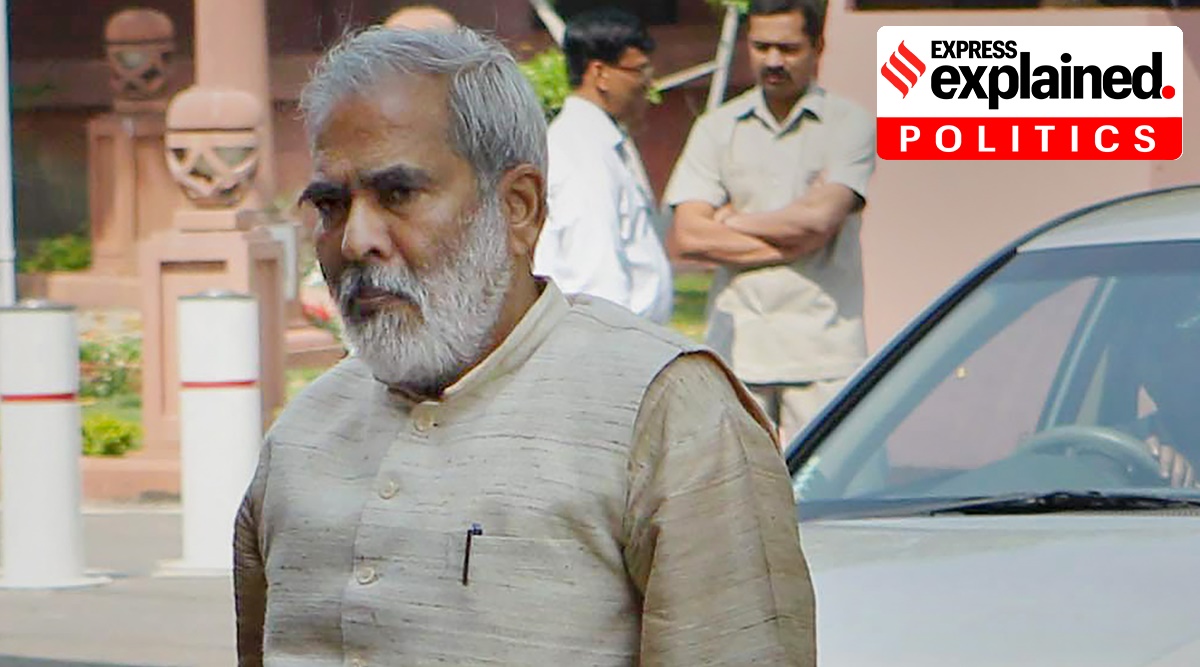
The Indian Express
Explained: The importance of Raghuvansh Prasad Singh, the last of true socialists
At a time when most regional parties have a monolithic structure with its leaders not being questioned, Raghuvansh Prasad Singh was an outlier.
by Santosh SinghVeteran socialist leader, former Union minister and ex-RJD MP Raghuvansh Prasad Singh, who passed away on Sunday, played many roles in his long political career. He was one of the tallest socialist leaders of the post-Karpoori Thakur generation. As a rural development minister between 2004 and 2009, Singh was one of the key persons behind the success of the UPA government’s flagship scheme, MNREGS.
At a time when most regional parties have a monolithic structure with its leaders not being questioned, Raghuvansh Prasad Singh was an outlier. He never hesitated to question even party supremo Lalu Prasad Yadav. To his supporters and most mediapersons, he was an “affable Brahmababa”.
The 74-year-old leader commanded immense respect cutting across party lines. And this was exemplified in the tribute paid by Prime Minister Narendra Modi. The PM said Raghuvansh Prasad Singh’s ‘demise has left a void in the political sphere of Bihar as well as the country.’
https://images.indianexpress.com/2020/08/1x1.png
Singh’s longtime associate and RJD chief Lalu Prasad, with whom he parted ways just days ago, wrote from jail as to how he would miss his old friend.
The former Vaishali MP, who represented the constituency a record five times, had recovered from Covid infection. He had to be admitted to AIIMS in Delhi after developing complications.
Upset with the functioning of the party he had formed with Lalu Prasad, he was facing an ideological dilemma. Like a true socialist, he sent two handwritten letters, one to Lalu Prasad and other to Bihar CM Nitish Kumar. He also wrote a separate two-page note on the loss of degradation of socialist ideals with both direct and indirect reference to the RJD. The socialist stalwart lamented how pictures of Mahatma Gandhi, BR Ambedkar, Dr Ram Manohar Lohia, Jayaprakash Narayan and Karpoori Thakur were replaced by five persons of one family (a reference to Lalu).
Singh had his personal reasons to be upset with his party – he had wished to be sent to Rajya Sabha after back-to-back losses in the Lok Sabha polls. He had, perhaps, also aspired to get some important role in the party, and was also resisting the entry of his arch-rival and former MP Rama Kishore Singh (who had defeated him in 2014 Lok Sabha polls as an LJP candidate) into the party.
His one-line resignation letter to Lalu Prasad summarised his pain, anguish and frustration. Singh had written how he had stood behind Lalu Prasad for 32 years since the death of Karpoori Thakur. “But not any longer” was all he wrote as his last message to his old friend.
His death cannot be seen in social or electoral prism. He was much more than just an upper caste Rajput leader. He was like a loyal sentry of the withering fort of the RJD. At a time when most prodigies of Karpoori Thakur in the Lalu camp had either left the party or had been feeling suffocated with Lalu’s next generation taking over, Raghuvansh had been fighting for respect for seniors in the party. He was his own man – a sharp critic.
Bihar CM Nitish Kumar did silently admire Raghuvansh Prasad Singh but could never succeed in making him cross over to JD(U). Singh had been an avowed political rival to Kumar.
Whether it is the extension of rural roads or employment generation under the MNREGS, Raghuvansh Prasad Singh was seen as one of the best performing ministers in the Manmohan Singh cabinet in UPA-I.
Singh, who learnt his political lessons from the likes of Jayaprakash Narayan and Karpoori Thakur, was a rare breed of socialists. He hardly learnt ways of compromising with his ideals. He was the voice of sanity amidst the din of degraded politics. His death is not just a loss for RJD and Bihar, it is the passing away of the last of true socialists in Indian politics.